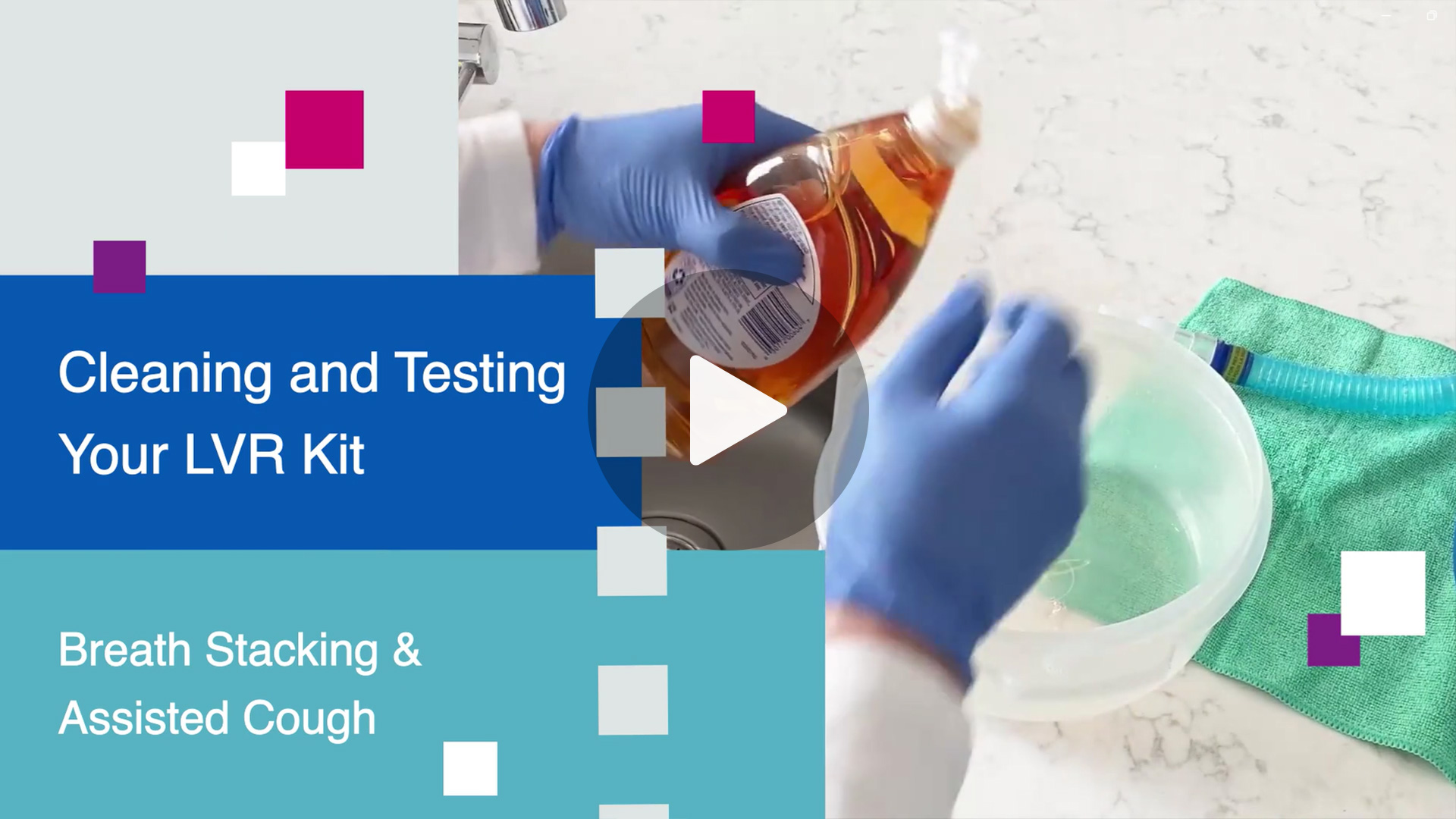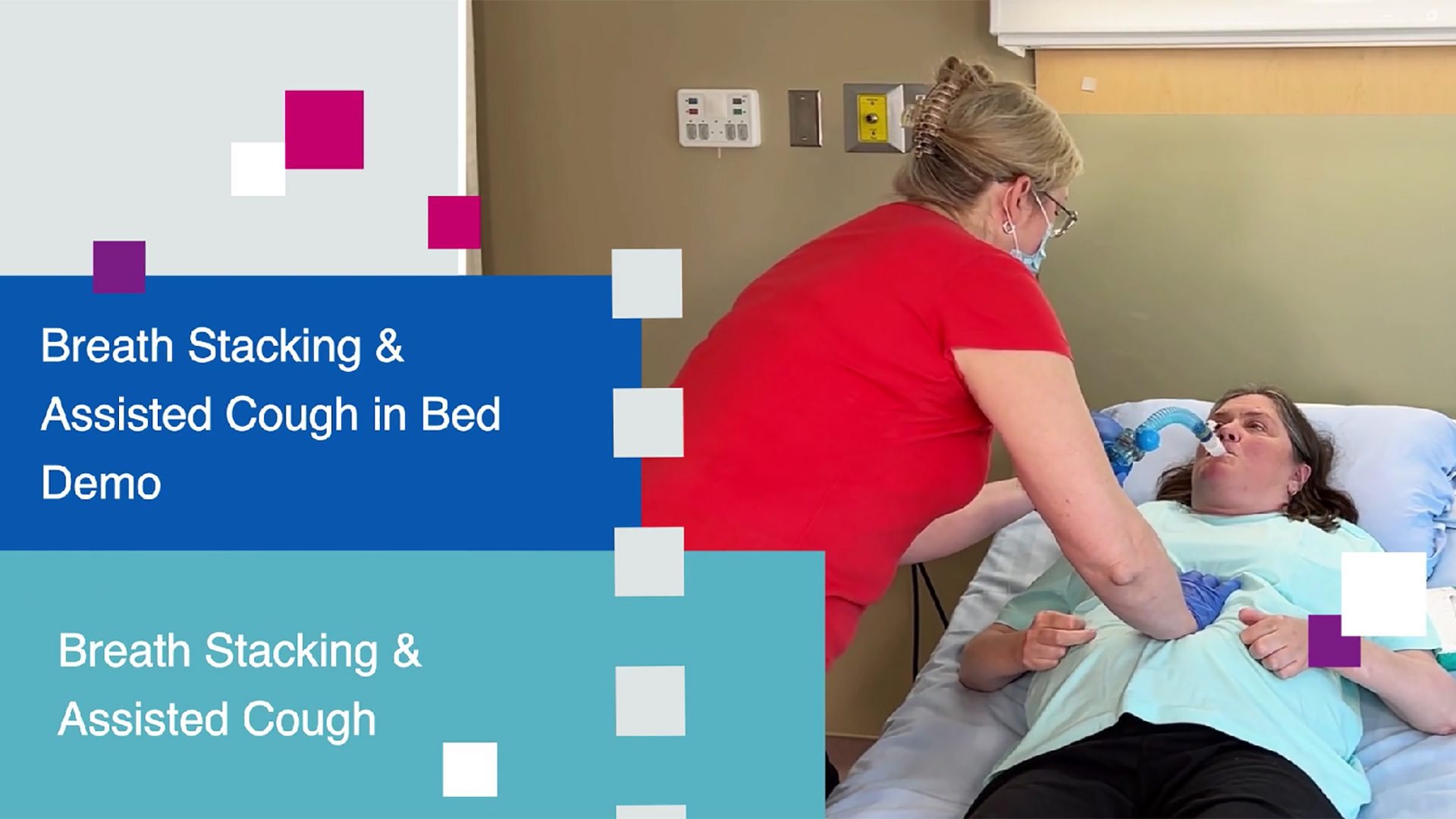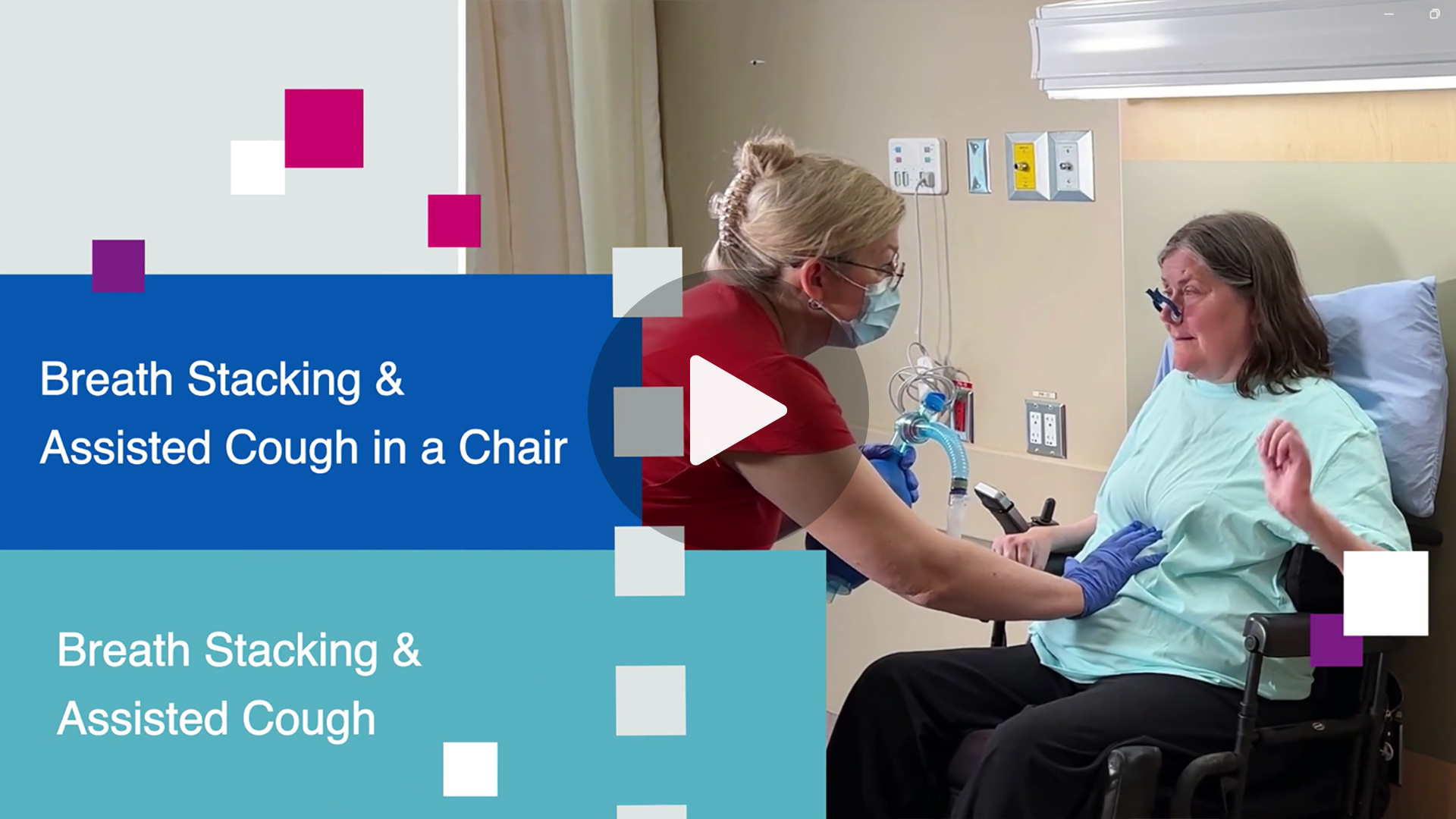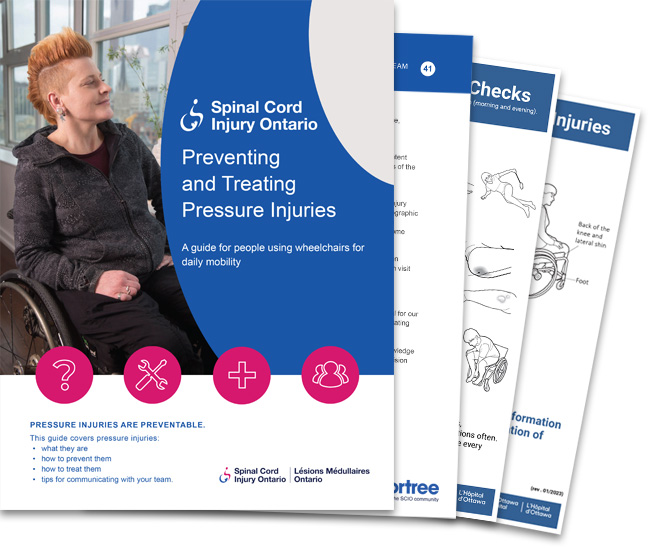The Lung Volume Recruitment (LVR) bag and the attachments are available for purchase as a preassembled kit. Here are two vendor options in Canada:
- Medigas carries the Mercury Medical Lung Volume Recruitment Kit, product number is TRSM161034502 and price is approximately $60 CAD, https://www.medigas.com/en.
- ProResp sells the Mercury Medical LVR kit by the box of 6, https://www.proresp.com/.
You may also receive an LVR kit from your Respiratory Therapist which they put together for you. The LVR kit can be setup to meet your individual needs. You can add another flex tube for increased reach from the bag to the mouthpiece. You can also decide which kind of mouthpiece works best for you.
The main components of any LVR bag setup are:
- The resuscitation bag. Depending on the brand of bag – you may need to ‘unpop’ or open the bag
- A flex tube, which can be adjustable in length
- A one-way valve
- A safety cap on the one-way valve
- The flapless “safety catcher” valve which stops anything from getting through to the mouth
- The mouthpiece. The mouthpiece could be either a small in-mouth style or a face mask. This demo is using a mouthpiece.
Some stacking valves come apart. In the demos in this series we use an LVR kit with a one-piece flex tube and non-removable stacking valve.
If you think the Breath Stacking and Assisted Cough techniques are something you could benefit from, connect with your healthcare team to discuss lung volume testing and how to get the tools and assistance you’ll need to get started.
Remember: These LVR kits are not intended for use as resuscitation bag.
Additional notes for healthcare providers:
- Use of the LVR kit is not recommended in the presence of hemoptysis, recent or current barotrauma, bullous emphysema, severe obstructive pulmonary diseases, hypotension.
- Do NOT use the LVR kit if the individual has an inflated tracheostomy cuff or endotracheal tube.
- Individual assessment and precaution should be taken if any of the following exists: severe reflux, IVC filter, Kyphoscoliosis, or Baclofen Pump.
- An Assisted Cough should not be done for any individuals that are pregnant or that have had recent abdominal surgery or have an abdominal aneurysm.
We hope you enjoy this video series and watching these demonstrations. If you have any questions about what you learn, be sure to reach out to your healthcare team or service and resource providers like Spinal Cord Injury Ontario.
We would like to acknowledge and thank the people with lived experience who contributed their insights and tips to the development of this video series:
- Ron Rattie, Peer Support Program Coordinator, Spinal Cord Injury Ontario
- Sandra Burton
- Matt Sagan, Peer Support Volunteer, Spinal Cord Injury Ontario
We would also like to thank Hamilton Health Sciences staff who provided clinical subject matter expertise, source content and expert review of this video series:
- Renata Vaughan, RRT Senior Registered Respiratory Therapist, Hamilton Health Sciences Regional Rehabilitation Centre
- Jennifer Duley, APP Advanced Practice Physiotherapist, Acute Spine Unit, Hamilton Health Sciences.
This series was designed by Marty Doupe, Learning Architect at SCIO.




